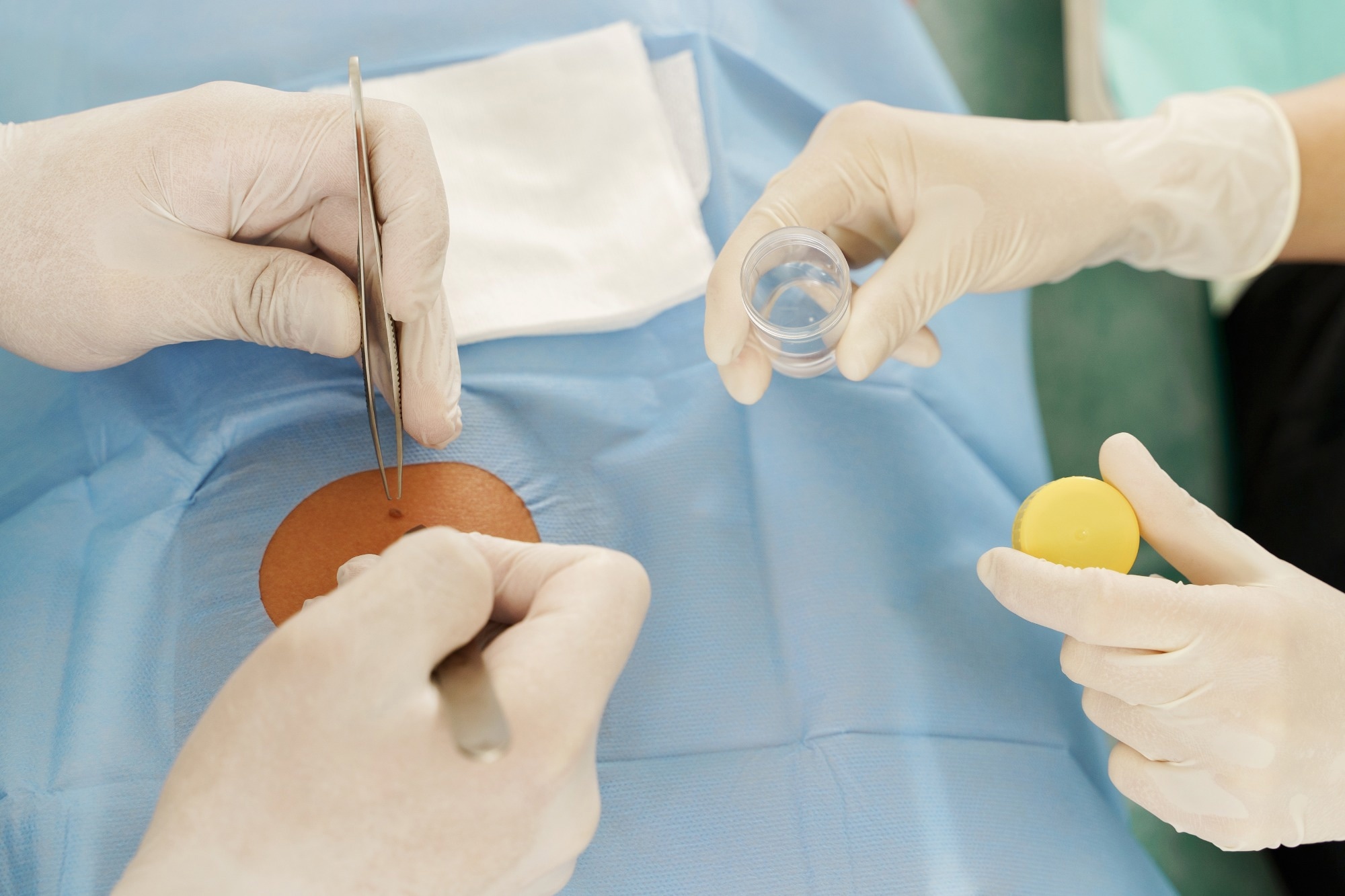In a recent study published in JAMA , researchers evaluated the positivity rate of cutaneous phosphorylated alpha-synuclein protein (P-SYN) deposition among individuals with dementia with Lewy body presence (DLB), Parkinson's disease (PD), pure autonomic failure (PAF), and multiple system atrophy (MSA). Study: Skin Biopsy Detection of Phosphorylated α-Synuclein in Patients With Synucleinopathies . Image Credit: BLACKDAY/Shutterstock.
com Synucleinopathies are neurodegenerative illnesses that cause P-SYN accumulation in the peripheral and central nervous systems. They include PD, MSA, DLB, and PAF. These illnesses share clinical characteristics, including progressive impairment and neurodegeneration.
Current pharmacology lacks disease-modifying medication for these illnesses, and many individuals diagnosed with synucleinopathies face diagnostic delays or misdiagnoses. A reliable biomarker for identifying synucleinopathies, such as immunohistochemistry of cutaneous phosphorylated α-synuclein, is urgently needed. This test might be sensitive and specific.
In the present prospective, multicenter, cross-sectional study, researchers investigated whether skin biopsy could detect P-SYN in PD, MSA, DLB, and PAF patients. The researchers enrolled clinically confirmed cases of DLB, PD, PAF, or MSA recruited from 19 community-based and 11 academic neurology practices between February 2021 and March 2023, aged between 40 and 99 years. Individuals without history or clinical features indi.



















